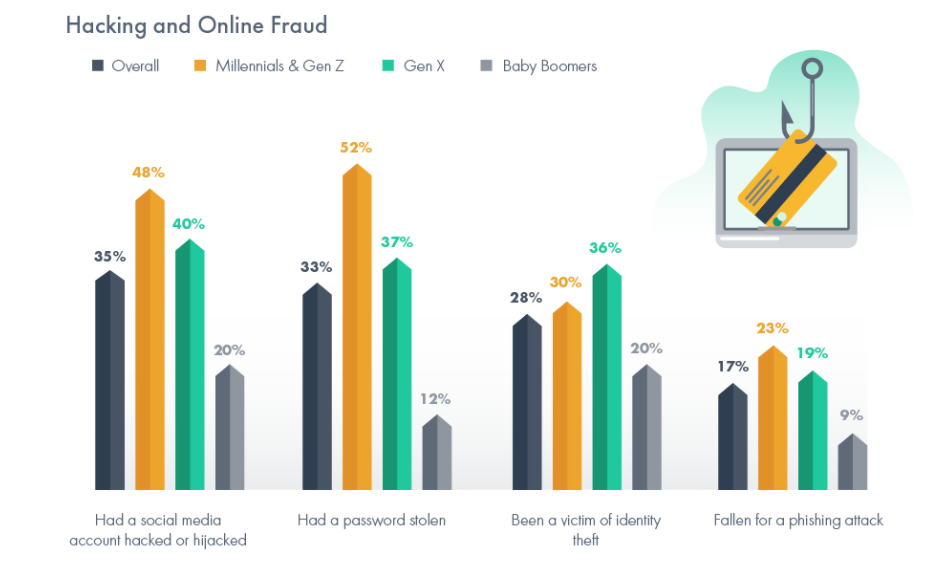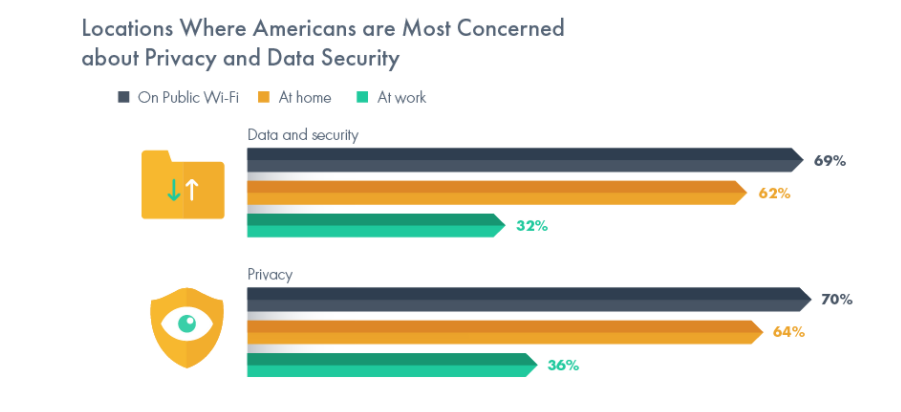Since March 2020 there has been an increase of of VPN (Virtual Private Network) discount-related searches as Americans search for a way to feel secure online, according to a new report.
New York, NY-based coupon engine CouponFollow, part of NextGen Shopping surveyed 1,666 US adults before the pandemic and a further 1,834 US adults in February 2021 to understand how Americans view their internet security and data privacy.
Also: What is a VPN and why do you need one? Everything you have to know
The report showed that almost seven in ten (69%) of Americans are concerned about the security of their data when using public Wi-fi, and nearly two in three (64%) are worried about it when using the internet at home.
A similar percentage (65%) are concerned that their medical or financial data might be shared — or sold on — by their ISP.
Online privacy worries almost half (47%) of Americans who are concerned about their privacy when using public Wi-Fi. Nearly a third (30%) worry about their privacy even when using the Internet at home.


Online fraud and hacking is a concern for Americans with over one in three (35%) knowing someone who has had their social media account hacked or hijacked — including them. Almost half of Millennials (48%) reported this happening.
In October 2020 the UK’s data privacy watchdog fined the Marriott hotel chain for a data breach that could have affected up to 339 million guests. Even social media sites like Facebook has suffered data leaks.
One in three have had, or know someone who has had their password stolen, and (52%) of Millennials and Gen Z reported the same.
Also: How to set up and use a VPN on Windows, Mac, iOS, or Android
Only 12% of Baby Boomers reported having their password stolen, and one in five (20%) had a social media account hacked or hijacked — reflecting the amount of time they spend online.
Although one in three (35%) Americas use a VPN, 33% reported that they do not know what a VPN is.
Men are more likely to know what a VPN is, but almost half of Baby Boomers (49%) do not know what a VPN is. Even two in five (40%) of VPN users do not understand what the term VPN means.


Using the internet at work does not seem to elicit the same level of concern. This could be due to the levels of antivirus and firewall protections that their employer has implemented on their devices.
Perhaps it is due to the type of sites that people browse on their work devices, here, less than one in three (32%) are worried about their security.
Less than one in five (18%) are concerned about their privacy when browsing the web from a work device.
Over one in ten (12%) started to use a VPN in 2020, and one in five (21%) installed a VPN to enable them to work from home.
Also: Stop using your work laptop or phone for personal stuff
Up to 35% of Americans already use a VPN for anonymous browsing (45%), work access (45%), or for shopping online (21%). Only 12% use it for Torrenting or P2P file sharing.
As hacking attempts and breaches grow Americans have good reason to be cautious. Parler’s data leak exposed millions of posts as 70TB of data was scraped from the platform, and The ParkMobile app data breach exposed data from 21 million users.
Being ultra-careful online will be the only way to avoid being a victim of the next breach.
